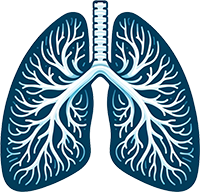Learn strategies to help you live your best life possible while you are living with the infection.

LIVING WITH VALLEY FEVER / COCCI (COCCIDIOIDOMYCOSIS)
 If you or your loved one has been diagnosed with coccidioidomycosis (Cocci), you may have a lot of questions about what to expect and how to live the best life possible. This section addresses what to expect and how you can take care of yourself or your loved one after a Cocci diagnosis.
If you or your loved one has been diagnosed with coccidioidomycosis (Cocci), you may have a lot of questions about what to expect and how to live the best life possible. This section addresses what to expect and how you can take care of yourself or your loved one after a Cocci diagnosis.
KNOWING WHAT TO EXPECT
Your provider will spend time educating you and your loved ones about Cocci and it’s treatment course. Here are some key topics you can expect to discuss:
Pulmonary Cocci (Valley Fever)
- Your provider should go over the symptoms to expect.
- They should also relay that the illness improves at different rates for different people, but it generally resolves slowly.
- They should go over the outcomes for Cocci. While the outcome of Cocci is generally good, you should understand potential pulmonary and extrapulmonary symptoms.
- You should keep an eye out for red flag symptoms suggesting that there may be serious lung complications and Coccidioidal meningitis.
- You should anticipate that you will need to follow-up with your provider regularly over the next several months.
- Your clinician should document any abnormalities on your chest X ray so that they are not needlessly evaluated.
- If your symptoms get worse, you should contact your healthcare provider, who may bring you back early for evaluation.
- If your symptoms subside, you may have less frequent follow-ups.
Complicated or Disseminated Cocci
If you have a more complicated or disseminated form of Cocci, you have a longer road with the disease. Consider discussing the following with your healthcare provider.
- Your provider should go over red flag symptoms that need immediate attention/evaluation. They should explain when to call the office and when you need to go to the emergency room.
- You should anticipate living with the disease for a long time. Currently available medications typically don’t cure disseminated Cocci. You may need to be on antifungals for a long time—perhaps for life.
- You should anticipate frequent follow-up visits, often with multiple specialists.
- Your clinician should document any abnormalities on your chest x-ray so that they are not needlessly evaluated.
- Because you are likely to be on antifungals for a long period of time, you may develop challenging side effects. Have an honest conversation with your healthcare provider about what is troubling you. It is better to make adjustments (including potentially switching therapy) than to stop therapy, which could lead to the disease coming back aggressively.
- Your provider may monitor drug levels to make sure you are that you are taking the drugs as prescribed.
- You may experience some level of disability from your Cocci. See below for financial implications.
ADOPTING A LONG-RANGE VIEW
One theme that gets repeated over and over again related to Cocci is that it takes a long-time to recover. Even patients with primary pulmonary Cocci may take months to feel like themselves. This may lead you to think something is wrong. Here are some points about taking a long-range view:
- Since symptoms take a long time to resolve, you might have to work to stay positive about your recovery. You can consider using a symptom diary to look at your progress. You may want to compare how you are doing at major holidays to mark your progress (rather than looking at a daily or weekly view).
- Expect fatigue to take a long time to resolve. Physical therapy may help—your healthcare provider can write a prescription for this.
- Get support! Some people find talking with other patients helpful. The Valley Fever Institute has a virtual support group that meets weekly. This may be helpful for both the patient and caregiver.
- If you are a caregiver, get some support for yourself. Keep up with your own health and try to build in time to recharge.
- Get involved. Your experience with Cocci has impacted your life. That experience could help others. Would you like to help us advocate for improved Cocci care? Click here to connect with us and we can explore opportunities for you to make a difference!
DEALING WITH THE FINANCIAL IMPLICATIONS
 Before you or your loved one starts a therapy, you should ask your doctor to contact your health insurance company to find out whether these medications are covered by your insurance and if you will be responsible for paying for any part of the bill. You can also look into your coverage on your own by contacting your insurance company. Consider the following:
Before you or your loved one starts a therapy, you should ask your doctor to contact your health insurance company to find out whether these medications are covered by your insurance and if you will be responsible for paying for any part of the bill. You can also look into your coverage on your own by contacting your insurance company. Consider the following:
- If you have commercial insurance. With commercial insurance, you may receive co-pay assistance from the drug manufacturer. Financial assistance information for branded antifungals isshown under each drug’s name.
- If you have insurance from a federal/state program (such as Medicare, Medicaid, or Tricare). If you have insurance through a federal/state insurance program, you can’t receive financial assistance from the drug manufacturer, but you may be eligible for co-pay assistance from an independent charitable foundation.
- If you are not insured. If you are not insured, you may be eligible for free medications through drug manufacturers, charitable organizations, or designated hospitals, depending on your income. To find additional financial assistance, see www.hrsa.gov
- Which type of therapy you are receiving (oral vs IV). For insurance purposes, oral drugs may be treated differently than IV drugs. If you are on Medicare, oral drugs will, most likely, be covered under Medicare Part D, which is the prescription drug benefit, and IV drugs will be covered under Medicare Part B. Note that there may be an out-of-pocket cost difference because of this differentiation.
- Whether you will be able to work. Treatments can affect your ability to work. Here are some questions to ask yourself: Are you able to miss work during treatment, either to receive infusions or because of the side effects of therapy? Does your work require you to travel? If you work full time, can you arrange a flexible schedule to meet your treatment requirements? It is important to consider these factors and find out your legal protections under the Family and Medical Leave Act (FMLA). The Patient Advocate Foundation at patientadvocate.org (800.532.5274) can assist in this process.


 Your Cocci disease may leave scars or other structures that show up as abnormalities on your chest X-ray. Be sure to get a copy of your x-ray from your doctor and show it to any future clinicians who are imaging your lungs. Explain that you have had Cocci. This simple step can save you from a lot of testing and worry over other potential lung problems, like cancer.
Your Cocci disease may leave scars or other structures that show up as abnormalities on your chest X-ray. Be sure to get a copy of your x-ray from your doctor and show it to any future clinicians who are imaging your lungs. Explain that you have had Cocci. This simple step can save you from a lot of testing and worry over other potential lung problems, like cancer.